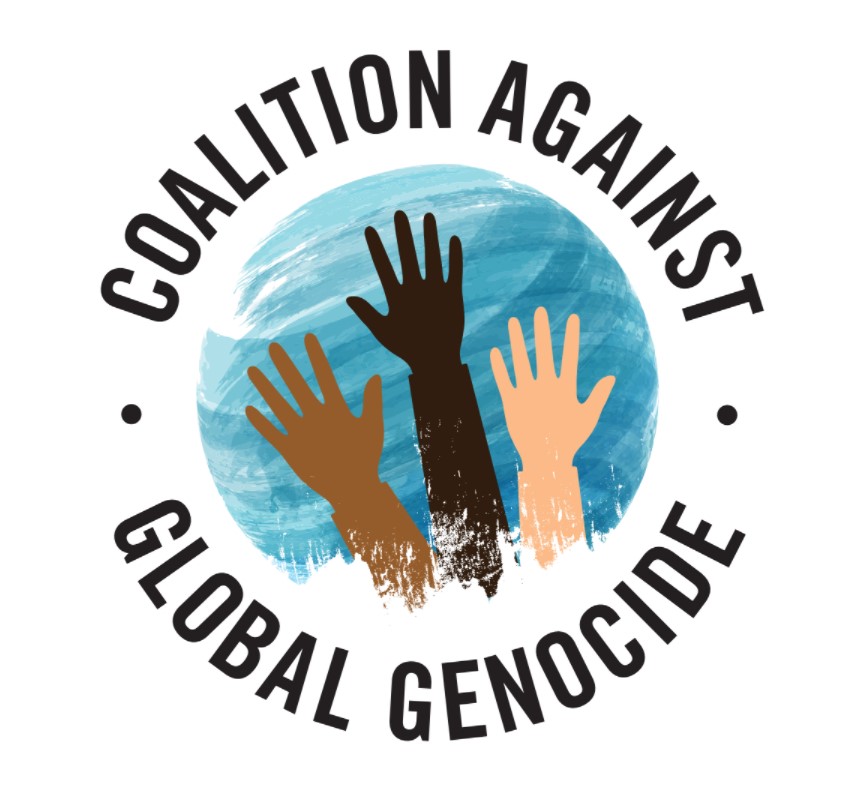The Coalition Against Global Genocide is proud to celebrate Hispanic Heritage Month and honor Latino communities for all the contributions they’ve made to our country throughout its history. According to the U.S. Census Bureau, the Latino population exceeds 60 million and comprises nearly one fifth of the total population. As the largest ethnic group in the country, Latinos continue to fuel the U.S. economy and enrich our nation’s culture. From shaping America’s pastime (aka baseball) to introducing new cuisines, talented artists, musicians, and entrepreneurs, there is no doubt that the Hispanic population has positively and significantly impacted America, making it what it is today. It is because of these incredible societal and cultural contributions that we recognize and celebrate all Latino communities and honor their heritage via this month-long celebration.
What began in 1968 as Hispanic Heritage Week under the Johnson administration, was expanded to a full month by the Reagan administration in 1988. Unlike other months that honor various ethnic groups, Hispanic Heritage month does not start at the beginning of a traditional month. Rather, the celebration spans from September 15 to October 15 each year to encompass the many Latino communities that celebrate their independence days during this timeframe including:
- September 15 – Costa Rica, El Salvador, Guatemala, Honduras, and Nicaragua
- September 16 – Mexico
- September 18 – Chile
- September 21 – Belize
In the latest episode of “Never Again,” Dr. Pius Kamau and Polly Baca, the first Hispanic woman elected to the Colorado State Senate and a founding staff member of the National Council La Raza (now UnidosUS), explore the significance of Hispanic American Heritage month and how it represents all Latin communities in the US in spite of their differences and similarities.
Throughout the podcast episode, Baca covers an array of topics. Not only does she reflect on her childhood and recount the bigotry she and her family faced as Spanish-speakers in what is now Greeley, Colorado, but she also shares the centuries-long history of the Latino in presence in America. She discusses her political involvement in pursuing Hispanic rights and highlights her experience marching on Washington with Martin Luther King Jr. under the umbrella of the Civil Rights movement. Plus, if you’ve ever wondered about the difference between collective racial terms like “Hispanic” and “Latino,” you’re in luck, because she covers that, too. In her interview, Baca seeks to educate, enlighten, and clarify common misconceptions for the general population to help us understand the deeps roots of Latinos in the United States.
“There’s a lot of misunderstanding about the Latino population,” she notes. “During this past Hispanic Heritage Week there were a lot of portrayals on television of Hispanic people from different parts of Hispanic heritage, yet they always leave out those of us who were here before anyone else came… They don’t realize that we were here beginning in 1598 and that makes me sad. The U.S. views itself as a country of immigrants as opposed to recognizing that people were [already] here. The Native Americans were here. The Spanish were here before the English landed on Plymouth Rock. That’s not recognized or understood, and it’s not taught in schools.”
As Baca reflects on this unfortunate truth, she laments the consequences of it. In speaking holistically about the various Latino communities, she states, “We came to this part of the world as Spanish speakers, so it was the language that tied us all together, although beginning with my generation we started to lose the language because of the bigotry.” She speaks to this experience firsthand, recounting how her mother was concerned to teach Baca and her siblings Spanish for fear that they would speak English with an accent, which would result in even greater discrimination. “A lot of us, as a consequence, didn’t learn Spanish as children and so we had to learn that later on in life,” she says.
Throughout the interview, Baca keeps coming back to the idea of what makes Hispanic culture unique. “The Hispanic Latino population is a combination of all the different races and I’m so proud of that,” she says. “That’s what makes us unique as Hispanic. And that has influenced our culture – the combination of Black, White, Asian, Native American— because we combine the different heritages.”
Her words reflect the fact that there is so much to celebrate, which is why Hispanic Heritage Month is so important. In the words of President Biden in his Proclamation on National Hispanic Heritage Month, he sates:
In our country, Latino leaders are striving for the American Dream and helping those around them reach it too. From those who have been here for generations to those who have recently arrived, Latinos have pushed our great American experiment forward. They are the community, faith, and union leaders who advocate and stand up for all of us. They are the first responders, who put themselves in harm’s way to keep the rest of us safe. And they represent the best of who we are as a Nation — the teachers and doctors, athletes and artists, business leaders, public servants, and so much more. They embody the possibilities of our Nation and the dreams of those who work every day to build a better future for their children, grandchildren, and beyond.
So, take some time to celebrate this month whether that’s by listening to Baca’s interview and sharing it with your community, or by experiencing Hispanic Latino culture through art, sports, literature, food, dance, or whatever comes to mind. No matter where you are in the U.S., when you take a moment to observe, you’ll likely notice that there is evidence of Hispanic Latino culture everywhere you turn. The cultural influence of Latino communities is omnipresent, and America is better for it.

